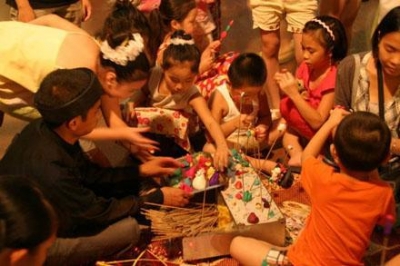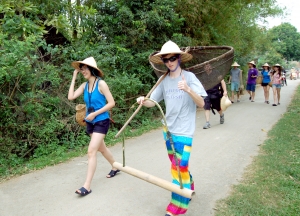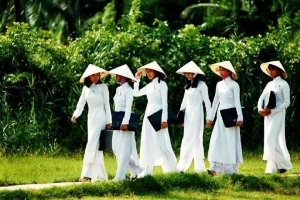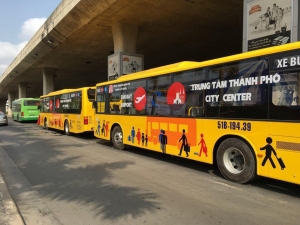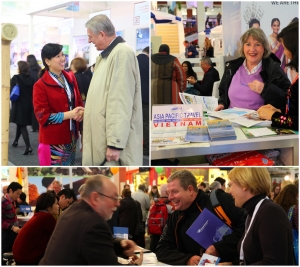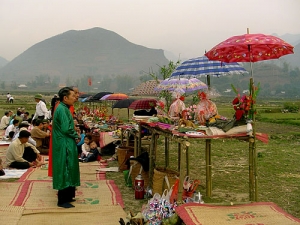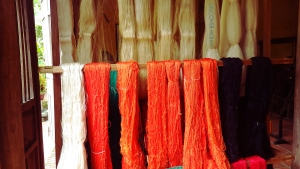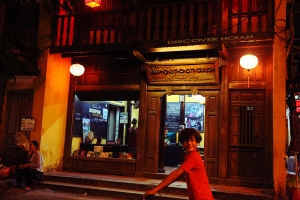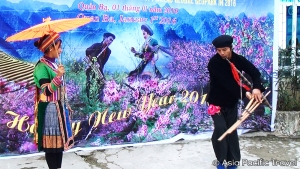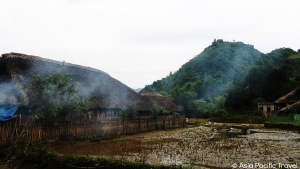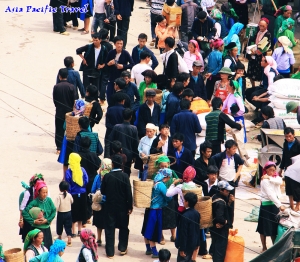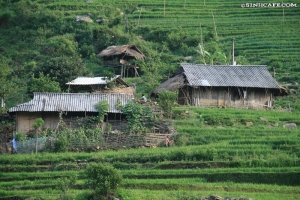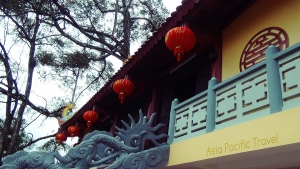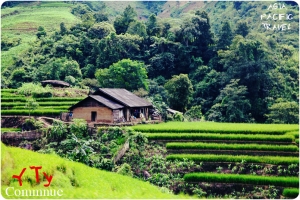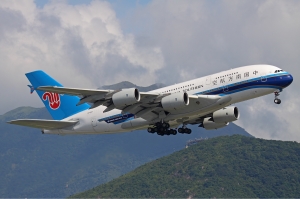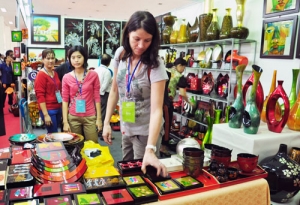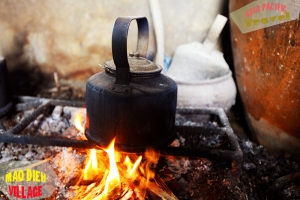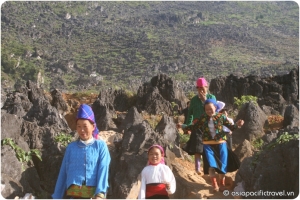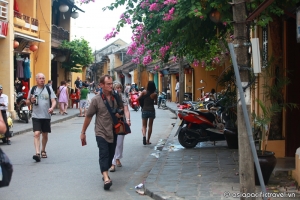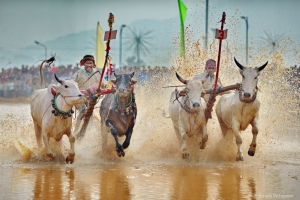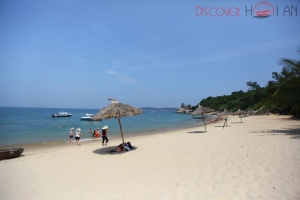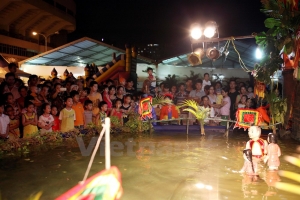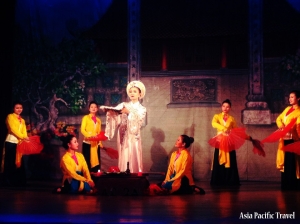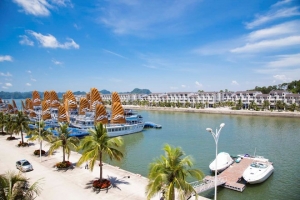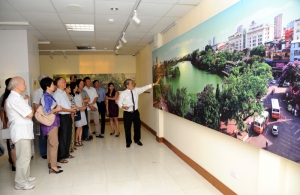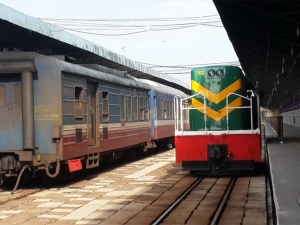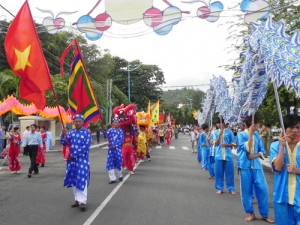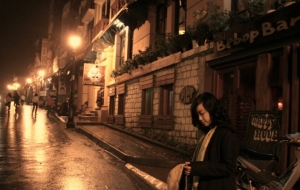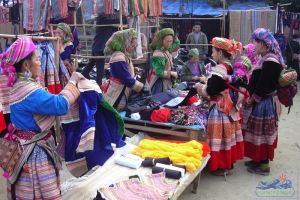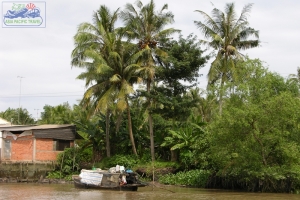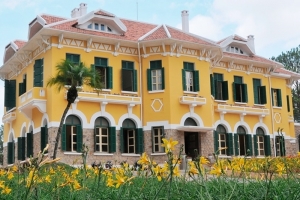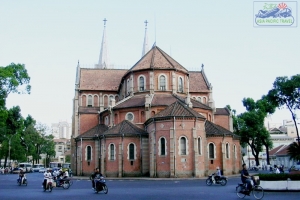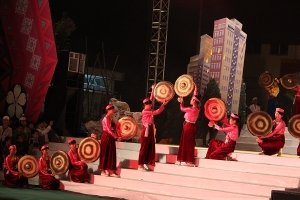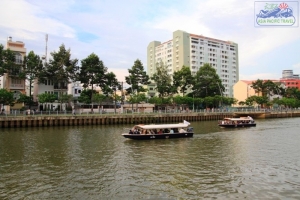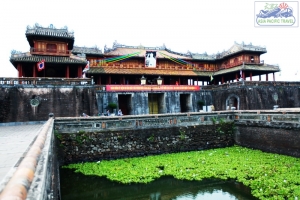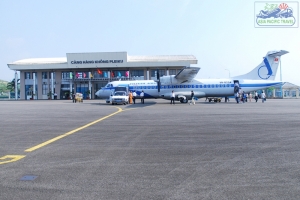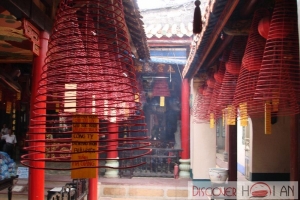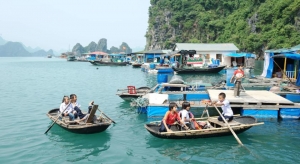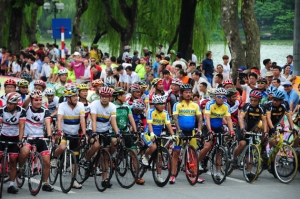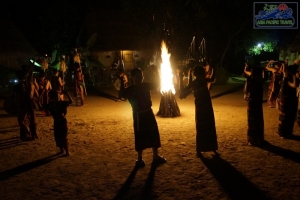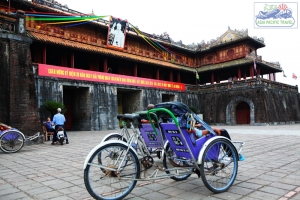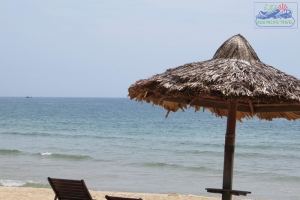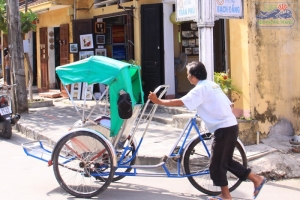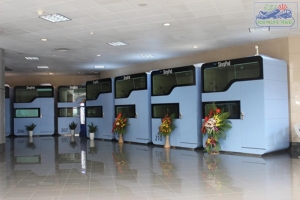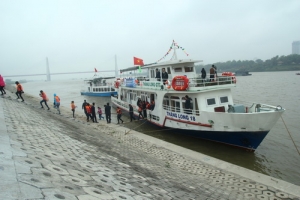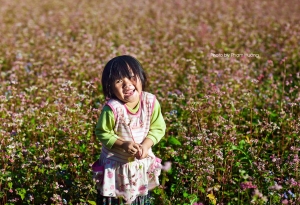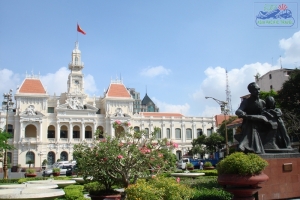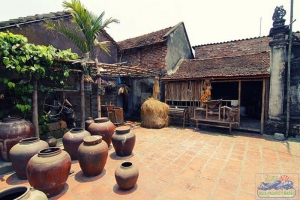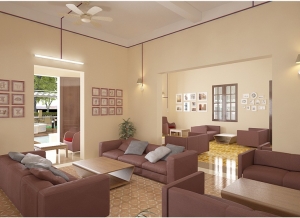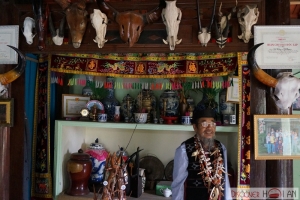The family is the most important of all social units in Vietnam. In contrast to the focus on individualism in the West, the close-knit family is the basic unit in Vietnamese society.
"Hieu", or filial piety, is one of the basic virtues. This refers to the idea of love, care, and respect that children give their parents. This obligation is unconditional, even in the case of a parent who abandons the children or does not fulfill his or her parental duties. Children are taught this virtue from a very young age (see THE ROLE OF CHILDREN). The socialization process normally begins at home with the teachings from grandparents and parents. This educational process continues throughout a child`s early years and is reinforced throughout all the social institutions.
One of the most well known Vietnamese proverbs is "Cong Cha nhu nui Thai Son, Nghia Me nhu nuoc trong nguon chay ra. Mot long tho Me kinh Cha, cho tron chu hieu moi la dao con," or The debt we owe our father is as great as Mount Thai son; the debt we owe our mother is as inexhaustible as water flowing from its source. We must repay their debt in order to fulfill our obligations as children" the cradle of traditional Vietnamese society was village place that provided individual with a sense community and security in potentially hostile environment. This along importance family created network extended kinship ties.
In traditional Vietnamese culture, strong individuals in a family have an obligation to the weaker and less fortunate members of the family (or village). Every action of every family member reflects on the family, be it achievement or shame. There is a sense of obligation and of providing for the welfare of each and the entire family. An individual who achieves fame at the expense of the family is discouraged and even sanctioned.
The family in Vietnam was also an extended one, unlike the typical "nuclear" family in the United States. The family traditionally was composed of three to five generations living in the same house, typically including parents, children, grandparents, and sometimes, unmarried uncles and aunts. The extended family acted as a source of mutual support and as an institution where individual problems and social conflicts could be resolved. However, the long history of multiple wars changed the basic structure of the Vietnamese family. Because many family members and individuals were killed during all the different wars, it would be difficult to maintain the expected ancient traditions and practice. Although the family structure fundamentally remains an extended one, in urban areas particularly, the family is limited to three generations: grandparents, parents and children. Vietnam also has patriarchal system where the man, or husband, serves as the head of the family... (See THE ROLE OF MAN). He takes care of money matters and is responsible for providing for the family. The woman (see THE ROLE OF WOMAN) is in charge of the affairs in the home and raising the children.
Vietnam Tours
- Con Dao Travel
- Weekend Travel
- Picnic Travel
- Ha Long Travel
- Daily Travel
- Hue Travel
- Festivals Travel
- Adventure Travel
- Northrn Travel
- Southern Travel
- Central Travel
- Nha Trang Travel
- Ha Giang Travel
- Sapa Travel
- Cao Bang Travel
- Discover Ha Long Travel
- Mekong Delta Travel
- Budget Travel
World Tours
- Indian Travel
- Kingdom Travel
- Cambodia Travel
- Canada Travel
- Germany Travel
- Dubai Travel
- Korea Travel
- Hongkong Travel
- Indonesia Travel
- Laos Travel
- Malaysia Travel
- U.S Travel
- Myanma Travel
- South Affica Travel
- Russian Travel
- Japan Travel
- Philippines Travel
- Singapore Travel


